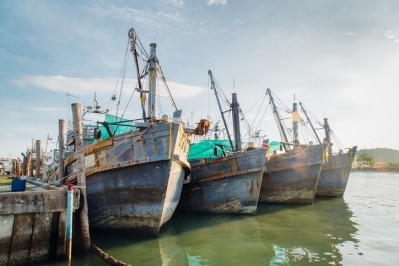UK law to fight slavery in big firm supply chains

Section 54 of the Modern Slavery Act will require all UK and UK-operating retailers and manufacturers with a turnover of more than £36 million (€51 m) to produce an annual report detailing steps they have taken to combat slavery and human trafficking.
This will include suppliers, wholesalers and farmers working in their supply chain.
‘An onerous obligation’ or ‘light touch legislation’?
Labour law expert and partner at Reed Smith, Thomas Ince told FoodNavigator: “Although this must be a positive step from a cultural perspective, the result is a potentially onerous obligation for large global businesses to audit their own organisations and their global direct and indirect supply chains. It is unlikely such companies will be able to complete this process before the first reporting deadline, meaning the positive impacts of the Act may take a number of years to filter through."
Although producing the report is obligatory, companies are free to say that they have done nothing to fight slavery and are not legally required to take any action to do so – prompting experts to warn that its effect could be limited.
Ince said: “The Act allows companies to take the easy route and simply report no action has been taken (...) Its success will therefore also depend on the level of interest from the public and media into how business’ report. In California, where similar legislation was introduced in 2012, its seems few companies have been willing to report they are doing nothing to tackle the issue.” ”
Section 54 - Start complying
Reed Smith legal experts give their tips to businesses:
- Make sure slavery and human trafficking are part of your CSR policy
- Expand your whistleblowing policy to cover slavery or human trafficking
- Make sure all your employees are paid minimum wage and the right to work
- Update your commercial agreements to include a clause stating suppliers and sub-contractors must comply with the Act
- Identify and prioritise high risk areas in your supply chain
- Start to investigate your supply chain
Meanwhile David Camp, programme coordinator at Stronger 2gether – a multi-stakeholder initiative which provides companies with free guidance and tools to identify and combat slavery – called it “a relatively light touch legislation” but said it would help move the issue of slavery from CSR agendas to the main boardroom.
British food industry trade group, Food and Drink Federation, welcomed the legislation as a way of upholding high employment standards but said that a flexible labour market also needed to be maintained.
“It is important that any further legislation created recognises the unique nature of the supply chain that makes up the UK food and drink manufacturing sector, where SMEs directly compete with larger, global businesses for retailer shelf space and consumer interest.
“These SMEs will have their own supplier networks that can total over 100 companies providing machinery, raw ingredients, packaging and other services.”
It said the unintended consequences of driving costs further down the supply chain needed to be investigated further.
Red tape and red cards
But Camp said that the report needn’t be expensive to put together and that Stronger 2gether was there to help companies comply.
“It’s not just more red tape. Most people wouldn’t want to think the products they consume or the services they use come from slavery and this transparency will shine light on the issue.”
Slave labour in the seafood industry hit the headlines again last week when Spanish MEP and member of the European Parliament’s committee on fisheries, Gabriel Mato, said he was in favour of issuing Thailand with a ‘red card’ – in other words banning its seafood imports to the EU due to inadequate measures to fight illegal fishing.
The issue first came to light last year when an investigation by The Guardian newspaper revealed how the world’s appetite for cheap prawns was being fed by Thai ‘ghost ships’ manned by enslaved workers.
Seafood was transported to shore on smaller vessels meaning the ghost ships never docked, with some trafficked workers – often of Burmese, Cambodian and Vietnamese descent – spending years on board without ever seeing land. Escapees spoke of torture and execution-style killings on board the ships.
Major retailers such as Tesco, Aldi and Morrison’s were found to be selling slave prawns in Britain, supplied by Thai company CP Foods.
























